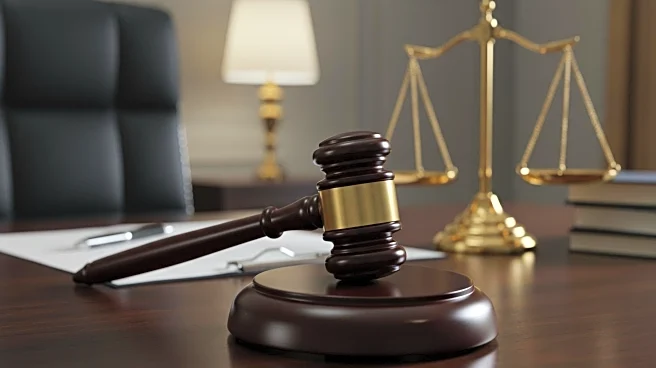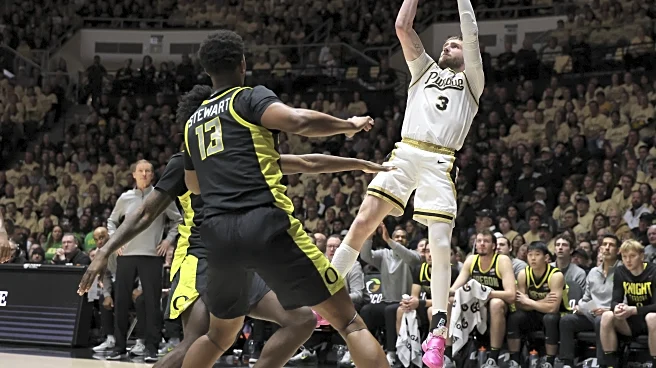What is the story about?
What's Happening?
President Trump’s administration has partially retreated from its attempt to take over Washington, D.C.'s police department. This decision follows a federal judge's indication that she would likely rule against the administration's plan to install its own emergency police commissioner. The administration's move was part of a broader strategy to exert federal control over local law enforcement in the nation's capital, which included activating National Guard troops to address crime. Despite the retreat, the administration has directed the city's police to cooperate with federal immigration enforcement. The legal challenge from D.C. officials, led by Mayor Muriel Bowser, argues that the takeover is unnecessary given the city's low crime rates and seeks to block the federal appointment of a new police chief.
Why It's Important?
This development is significant as it tests the limits of presidential authority over local governance, particularly in Washington, D.C., which has a unique status as a federal district. The administration's actions have sparked legal and political debates about federal overreach and the balance of power between local and federal authorities. The situation also highlights tensions between the Trump administration and predominantly Democratic cities, raising concerns about the use of federal power to influence local law enforcement policies. The outcome of this legal challenge could set precedents for federal involvement in local policing across the U.S.
What's Next?
The Trump administration has agreed to leave the current police chief in charge, but the legal battle continues as D.C. officials seek a court order to prevent federal control. The administration's authority to maintain the National Guard presence is limited to 30 days, with any extension requiring congressional approval. The situation may lead to further political and public protests, especially among D.C. residents who oppose increased federal intervention. The broader implications for other U.S. cities remain uncertain, as the administration's approach could serve as a model for future federal actions in urban areas.
Beyond the Headlines
The increased federal presence in Washington, D.C. has raised concerns about racial and social justice, as the city has a significant Black population. Critics argue that the administration's actions echo historical instances of racial profiling and discrimination in law enforcement. The situation also underscores the ongoing debate about the militarization of police forces and the role of federal troops in civilian areas. These deeper issues may influence public opinion and policy discussions on law enforcement reform and civil rights.

















